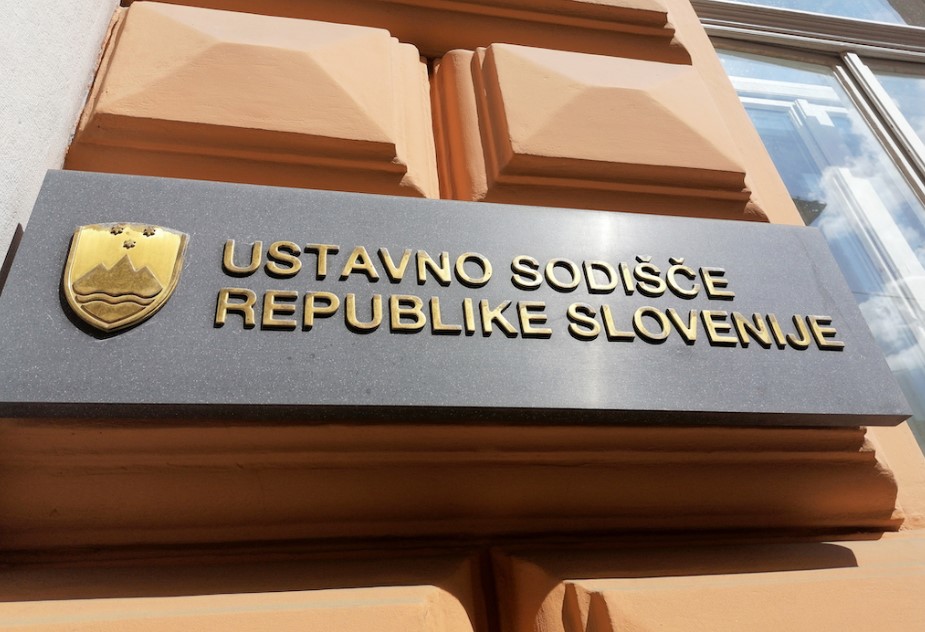As we reported, in case U-I-479/22, the Constitutional Court of the Republic of Slovenia temporarily suspended the implementation of part of the Law on Amendments and Supplements to the Law on Radio and Television Slovenia, which was adopted by the National Assembly last year. At the same time, the initiators of the constitutional review, Dr Peter Gregorčič and Prof. Dr Matej Avbelj came forward.
“The current government abused the emergency procedure and thereby excluded public debate and consequently made it impossible for the public to control the process of adopting the amendment,” the letter begins.
Let us remind you that the authorities have never given any credible reasons why the law is adopted through an emergency procedure. The reason for filing a constitutional review is – as they explained in the letter – securing the institutional independence of this public institution of special cultural and national importance. “This initiative is the only legal means with which we can prevent the current authorities from arbitrary and gross political subjugation of RTV Slovenia,” they added.
Such a law cannot be constitutional in any democracy
They are convinced that this law cannot pass constitutional judicial review in any functioning constitutional democracy that is committed to respecting at least the minimum standards of European human rights law, as developed in its judicial practice by the European Court of Human Rights. “Therefore, our constitutional court had no other option than to suspend the implementation of part of the law. In this case, the system of brakes and balances still worked in the end,” they said.
With a different decision, the Constitutional Court would have normalised the abuse of the political majority
“The constitutional court of any European country, which would not hold back the consequences of such a law (and would not later recognise the law as unconstitutional), would give a clear and obvious signal to any political authority that political personnel purges are allowed in that country, with which the members of the management and supervisory structures of institutions independent of the authorities, including the public media, can be replaced with loyal ones after each takeover of power,” they warned, adding that in this way the constitutional court would legalise and even normalise the abuse of the political majority, to arbitrarily first getting rid of non-ours judges, officials and other functionaries, as well as the management staff of the public media after taking over power, in a similar way as the illiberal regimes in Hungary and Poland did – also through legal changes, which were also supported by a qualified majority.
According to them, this would turn the legal state, in which the law rules, into a rule of law, in which the parliamentary majority at any given time rules the law.
The brake and balance system worked
“Our constitutional court responded to such an obvious abuse of power by timely issuing a decision on the temporary suspension of the implementation of part of the amendment to the law. This time, after as many as four sessions of the Constitutional Court, the so-called system of brakes and balances was established and worked.”
With this decision, the Constitutional Court temporarily – until the final assessment of the constitutionality of the disputed amendment – secured the institutional independence of RTV Slovenia. As a result, this decision also means the suspension of official instrumentalization of public statements by representatives of the government and journalist unions, with which they express their deep, crude and insulting political disagreement with the current management of RTV Slovenia.
Offensive criticism is permissible, but it must not become an instrument of power
They believe that public criticism should be allowed, even when it is coarse, politicised and (within legally permissible limits) even offensive. The admissibility of (even) such criticism is precisely the essence of freedom of expression, which is protected by our constitution. However, such disagreement cannot and should not become an instrument of the authorities, as it does not represent a constitutionally permissible goal that could be used to justify political personnel purges and all the consequences that these purges bring.
Law has not become the handmaiden of politics
The suspension, they believe, prevents law from once again becoming the handmaiden of politics. They believe that in a country governed by the rule of law, accusations against individuals must be proven and confirmed in court, considering all the procedural guarantees provided for by our constitution and the European Convention on the Protection of Human Rights. “By suspending the controversial amendment to the law on RTV Slovenia, the Constitutional Court took an important step in this direction. We consider this decision on temporary suspension to be extremely important also because it prevents law in Slovenia from once again becoming the handmaiden of politics and the rule of law from finally turning into a system of authoritarian legalism,” they concluded.
By: Andrej Žitnik


